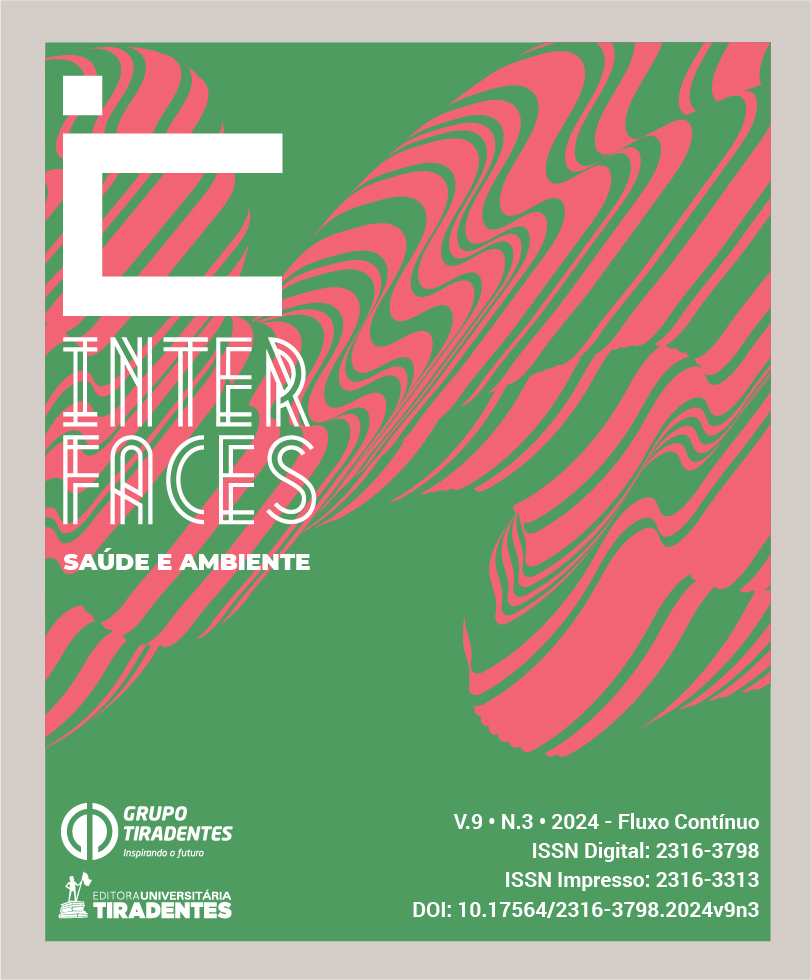CARACTERIZAÇÃO CLÍNICA E NUTRICIONAL DE PACIENTES ATENDIDOS EM UM PROGRAMA DE REABILITAÇÃO FUNCIONAL PÓS-COVID-19
DOI:
https://doi.org/10.17564/2316-3798.2024v9n3p760-776Published
Downloads
Downloads
Issue
Section
License
Copyright (c) 2024 Interfaces Científicas - Saúde e Ambiente

This work is licensed under a Creative Commons Attribution-NonCommercial 4.0 International License.
Autores que publicam nesta revista concordam com os seguintes termos:
a. Autores mantêm os direitos autorais e concedem à revista o direito de primeira publicação, com o trabalho simultaneamente licenciado sob a Licença Creative Commons Attribution que permite o compartilhamento do trabalho com reconhecimento da autoria e publicação inicial nesta revista.
b. Autores têm permissão e são estimulados a distribuir seu trabalho on-line (ex.: em repositórios institucionais ou na sua página pessoal), já que isso pode gerar aumento o impacto e a citação do trabalho publicado (Veja O Efeito do Acesso Livre).
Abstract
The COVID-19 pandemic has impacted millions of people worldwide, leaving many with persistent symptoms even after initial recovery from the disease, characterizing post-COVID-19 syndrome (PCS). In this context, clinical and nutritional characterization becomes essential for a comprehensive and effective approach in treating and managing symptoms. Therefore, this study aimed to describe the clinical and nutritional characterization of patients treated in a post-COVID-19 functional rehabilitation program (ReabgrUPE). This was a cross-sectional, descriptive study, with data collected through analysis of medical records of adult and elderly patients (N = 39) treated at ReabgrUPE. Sociodemographic, clinical, and lifestyle variables related to symptoms, body composition, and dietary intake were investigated. The majority of the sample was female (82.06%) and had an income between ≥1 and <1.5 minimum wages (64.1%). Over 50% of the volunteers reported pre-existing conditions before SARS-CoV-2 infection, with persistent post-COVID-19 symptoms, most commonly neurological and pulmonary. Overweight and cardiovascular risk were observed in over 50% of participants, and dietary intake showed inadequacies in micronutrient consumption in both sexes. Therefore, it is essential for healthcare professionals, including nutritionists, to work together to adequately characterize patients.




















